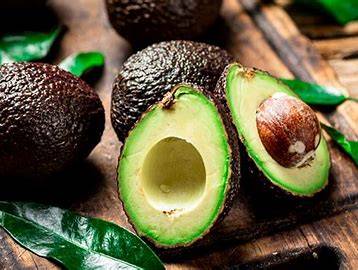What happens to your body when you eat 1 avocado every day?
Incorporating one avocado into your daily diet can bring a range of health benefits, supporting your gut, heart, brain, and overall well-being. Packed with essential nutrients, avocados offer a powerful nutritional profile that makes them an excellent addition to any diet.
According to the U.S. Department of Agriculture, a typical avocado contains 322 calories, 17 grams of carbohydrates, 14 grams of fiber, 4 grams of protein, 30 grams of total fat (4 grams of saturated fat), 14 milligrams of sodium, and no sugar. This nutrient-dense fruit is a rich source of healthy fats, dietary fiber, and beneficial compounds that promote optimal health.
Improved Gut Health
Avocados are exceptionally high in fiber, providing nearly half of the recommended daily intake of 28–34 grams in just one fruit. Dietary fiber is essential for gut health as it feeds beneficial gut bacteria, which ferment the fiber into short-chain fatty acids (SCFAs). SCFAs have anti-inflammatory properties and play a critical role in maintaining gut integrity.
A 2021 study published in The Journal of Nutrition revealed that daily avocado consumption increases the abundance of fiber-fermenting bacteria, boosts SCFA production, and reduces harmful bile acid concentrations in the gut. High bile acid levels are linked to gut inflammation, gallbladder issues, and nutrient malabsorption. By lowering these levels, avocados may help mitigate digestive problems such as unexplained diarrhea and enhance overall nutrient absorption.
Support for Healthy Weight Management
Despite their high-fat content, avocados can help maintain or even support weight management. Research published in the Journal of the American Heart Association in 2022 found that participants who ate one avocado daily for six months maintained a stable body weight. This suggests that avocados do not inherently contribute to weight gain when incorporated into a balanced diet.
Moreover, a 2019 study in Nutrients suggested that daily avocado consumption might prevent weight gain, while another study in The Journal of Nutrition linked eating avocados to a reduction in visceral fat in women. This type of fat, stored around internal organs, is a risk factor for cardiovascular and metabolic diseases.
The weight-management benefits of avocados are largely attributed to their high fiber and monounsaturated fat content. Fiber promotes feelings of fullness, reducing the likelihood of overeating, while monounsaturated fats—particularly oleic acid—help regulate fat storage when consumed in moderation. These properties make avocados a satisfying and healthy option for those looking to maintain or achieve a healthy weight.
In summary, eating one avocado daily provides numerous health benefits, from supporting digestive health to aiding in weight management. With its versatile flavor and impressive nutritional profile, this superfood deserves a spot in your diet.




No comments yet
Be the first to share your thoughts!